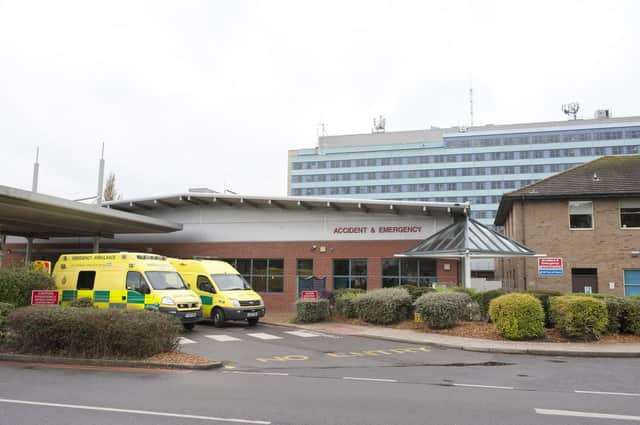Bosses painting a brighter future for Lincolnshire’s hospital trust


Representatives from United Lincolnshire Hospitals Trust were updating Lincolnshire County Council’s Health Scrutiny Committee on the latest progress after a CQC inspection earlier this year found they had made significant improvements but still labelled the trust as requires improvement.Chief operating officer Simon Evans and director of nursing Karen Dunderdale laid out a series of ambitions including aims to deliver between 104-120% more elective care and diagnostic activity than pre-pandemic and to reduce and eliminate long-term waiting lists.They said they had already achieved over and above those targets, including hitting 200% more elective surgery at one point, however, said there was a substantial challenge to maintain that success.“We did have the fire at Lincoln and that is a real challenge to us,” said Simon.“We’ve had to put in place many temporary measures to manage that but we’re still very confident of achieving the targets in the report.”Recent positive news, said the bosses, included an increase in its workforce of 531 whole-time equivalent staff which they said was “small but important” in the grand scheme of the trust.Mr Evans told the committee recruitment and retention had improved since the trust was taken out of special measures by CQC.“It is a substantial step forward… and left behind some of the stigma,” he said.“We have already seen recruitment processes with more candidates applying.“The reputation of the organisation has really lifted, particularly over the past year or so.”They admitted, however, there were some “significant gaps” in areas across the board, but that funding was being made available.New roles were also being developed which aimed to “up-skill” staff to cover some deficiencies.They also praised the new Clinical Diagnosis Centre in Grantham along with plans to create a second one elsewhere in Lincolnshire.Mr Evans praised the upgrades to A&E departments in Boston and Lincoln, calling the former “the largest development… perhaps since it was built”.He said this will help take a “much larger number of patients” and speed up ambulance handover.However, some councillors were unconvinced.Councillor Terry Boston, one of the longest health scrutiny members, said: “I’m afraid that what you’re telling me about the ambulance delays, and what is happening is almost word for word, what was being said 10 years ago, and nothing has changed.“It’s not just the people of sitting in ambulances but the impact of getting an ambulance out to somebody.”Mr Evans admitted it was a “genuine challenge” and was a symptom of wider issues around urgent and emergency care – including the level of occupancy by patients that might not need to be there.He noted that as of Tuesday morning there had been 175 patients within Lincoln and Pilgrim Hospitals that did not need acute care, while 55 patients had been waiting for beds in A&E.He said measures were being put into place and there was work ongoing but said “things are very different to the last 10 years”.Councillors also raised questions around needing more detail on the plans, paediatric services, non-medical staff and robotic surgery but voted in line with officer recommendations to consider the reports.